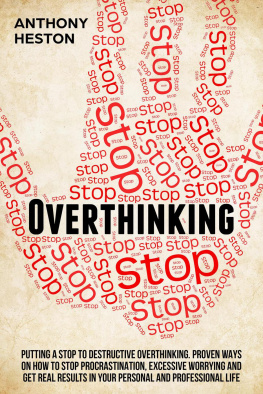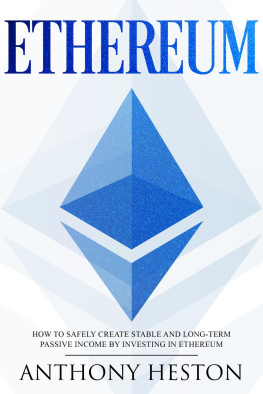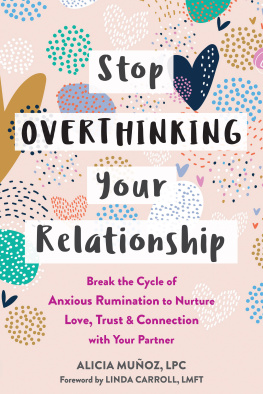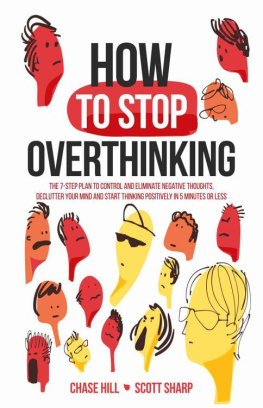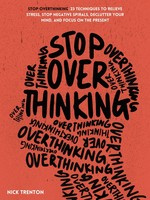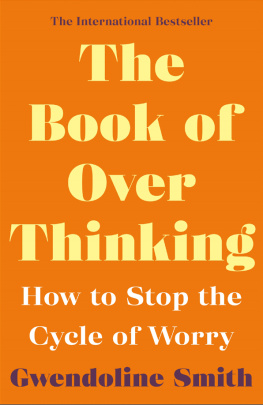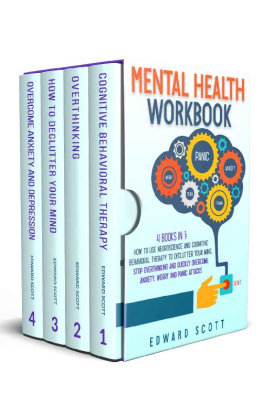Overthinking:
Putting a STOP to Destructive Overthinking. Proven Ways to Stop Procrastination, Excessive Worrying and Get Real Results in your Personal and Professional Life
Contents
Copyright 2018 by Anthony Heston - All rights reserved.
The follow eBook is reproduced below with the goal of providing information that is as accurate and reliable as possible. Regardless, purchasing this eBook can be seen as consent to the fact that both the publisher and the author of this book are in no way experts on the topics discussed within and that any recommendations or suggestions that are made herein are for entertainment purposes only. Professionals should be consulted as needed prior to undertaking any of the action endorsed herein.
This declaration is deemed fair and valid by both the American Bar Association and the Committee of Publishers Association and is legally binding throughout the United States.
Furthermore, the transmission, duplication or reproduction of any of the following work including specific information will be considered an illegal act irrespective of if it is done electronically or in print. This extends to creating a secondary or tertiary copy of the work or a recorded copy and is only allowed with an express written consent from the Publisher. All additional right reserved.
The information in the following pages is broadly considered to be a truthful and accurate account of facts, and as such any inattention, use or misuse of the information in question by the reader will render any resulting actions solely under their purview. There are no scenarios in which the publisher or the original author of this work can be in any fashion deemed liable for any hardship or damages that may befall them after undertaking information described herein.
Additionally, the information in the following pages is intended only for informational purposes and should thus be thought of as universal. As befitting its nature, it is presented without assurance regarding its prolonged validity or interim quality. Trademarks that are mentioned are done without written consent and can in no way be considered an endorsement from the trademark holder.
T HE FOLLOWING CHAPTERS will discuss methods for ending the destructive cycle of excessive worrying that can lead to procrastination and problems in both your personal and professional life. Overthinking is defined as putting too much time thinking about or analyzing something in a way that is more harmful than helpful. Simply put, when so much energy, time, and thought is consumed by a problem, either real or imagined, you will find it very difficult to take action.
Real life situations are presented throughout the chapters of this book to present alternative thoughts and actions to maximize your ability to apply the tactics to your own life. All of the methods may not apply to you or your specific overthinking behaviors, implement any that do and dismiss those that do not.
Keep in mind that overthinking is a habit that took time to develop, as such, replacing those habits with new ones will take time as well. Daily application of the methods you choose to implement will be necessary to make the change. With time, actively restructuring how you think will stop the destructive overthinking, procrastination, and excessive worrying to improve the relationship with yourself and others. Refer to the chapters as needed in the future to maintain the personal changes.
There are plenty of books on this subject on the market, thanks again for choosing this one! Every effort was made to ensure it is full of as much useful information as possible, please enjoy the journey!
Chapter 1: Prepare for Success

H OW YOU START YOUR day may be one of the most important factors that would determine how your day will proceed. Hectic mornings tend to become hectic afternoons and so on. An effective tool to end overthinking is to prevent it from happening. Do you know that breakfast is skipped most of the time because you are spending too much time deciding what to wear? Is lack of organization preventing you from taking on a large task? Do you often plan to start something tomorrow? Next Monday? The 1st of the month? When life gets easier? When the time is right? As the start date becomes more and more vague, it becomes very likely that it will never happen.
If these situations sound familiar, you can take steps to put an end to the cycle. Just as the saying goes, dress for the job you want instead of the one you have, you must prepare for the life you want instead of the one you have.
This chapter will offer tips for breaking old habits that serve only to reinforce the cycle of overthinking and procrastination. Replacing these habits with new practices to actively set yourself up for success is a good start to living the life you want to live.
Take a moment to consider how you start each day. Do you find that your morning routine is a stressful occurrence day after day? Do you have projects that are never completed because you dont know where to start? Do you feel trapped in a loop of constant failure and no longer see the point of trying anything better? Do you go to bed at night only to lie awake and wonder where the day went wrong? Are you focusing on one mistake you made a decade ago that could somehow be causing your current failure?
These types of negative feedback loops are common for the over-thinker. This inability to stop thinking about our mistakes/failures is called rumination. Fortunately, there are simple changes, that when practiced frequently, can break the cycle.
Spend a few extra minutes each night to ensure that the following morning will get off to a good start. Think of it as setting yourself up for success. Remember the 5 Ps: Proper Preparation Prevents Poor Performance. Doesnt thinking about tomorrow directly contradict the title of this book? Shouldnt you be living in the moment? The difference between destructive overthinking and preparing for performance is that one results in a solution. Worrying for the sake of worrying offers no solution to the problem.
Next page
